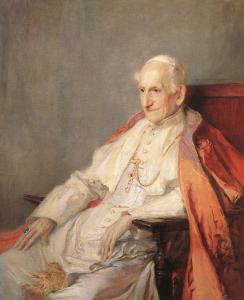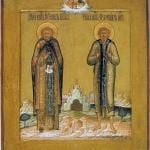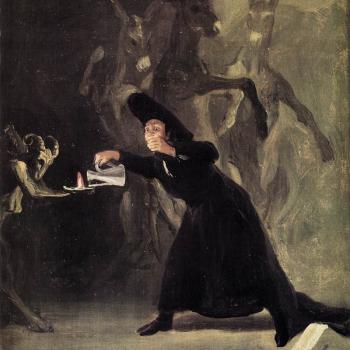
But what makes this anti-Catholic? The decision allows universities to defraud workers of their wages. This is one of the sins that cry out to heaven for vengeance. It is bad, very bad in fact. This, however, sounds abstract. How do we know it involves being defrauded of wages? The fact is that the Church has long supported labor unions as a necessary means of balancing the employer-employee relationship. Pope Francis has spoken about it. The USCCB has spoken about it. There is a history to this effect in the United States. But, most tellingly, Pope Leo XIII spoke out in favor of unions when they were just beginning:
Let the working man and the employer make free agreements, and in particular let them agree freely as to the wages; nevertheless, there underlies a dictate of natural justice more imperious and ancient than any bargain between man and man, namely, that wages ought not to be insufficient to support a frugal and well-behaved wage-earner. If through necessity or fear of a worse evil the workman accept harder conditions because an employer or contractor will afford him no better, he is made the victim of force and injustice. In these and similar questions, however – such as, for example, the hours of labor in different trades, the sanitary precautions to be observed in factories and workshops, etc. – in order to supersede undue interference on the part of the State, especially as circumstances, times, and localities differ so widely, it is advisable that recourse be had to societies or boards such as We shall mention presently, or to some other mode of safeguarding the interests of the wage-earners; the State being appealed to, should circumstances require, for its sanction and protection.
If a workman’s wages be sufficient to enable him comfortably to support himself, his wife, and his children, he will find it easy, if he be a sensible man, to practice thrift, and he will not fail, by cutting down expenses, to put by some little savings and thus secure a modest source of income. Nature itself would urge him to this. We have seen that this great labor question cannot be solved save by assuming as a principle that private ownership must be held sacred and inviolable. The law, therefore, should favor ownership, and its policy should be to induce as many as possible of the people to become owners.
Many excellent results will follow from this; and, first of all, property will certainly become more equitably divided. For, the result of civil change and revolution has been to divide cities into two classes separated by a wide chasm. On the one side there is the party which holds power because it holds wealth; which has in its grasp the whole of labor and trade; which manipulates for its own benefit and its own purposes all the sources of supply, and which is not without influence even in the administration of the commonwealth. On the other side there is the needy and powerless multitude, sick and sore in spirit and ever ready for disturbance. If working people can be encouraged to look forward to obtaining a share in the land, the consequence will be that the gulf between vast wealth and sheer poverty will be bridged over, and the respective classes will be brought nearer to one another. A further consequence will result in the great abundance of the fruits of the earth. Men always work harder and more readily when they work on that which belongs to them; nay, they learn to love the very soil that yields in response to the labor of their hands, not only food to eat, but an abundance of good things for themselves and those that are dear to them. That such a spirit of willing labor would add to the produce of the earth and to the wealth of the community is self evident. And a third advantage would spring from this: men would cling to the country in which they were born, for no one would exchange his country for a foreign land if his own afforded him the means of living a decent and happy life. These three important benefits, however, can be reckoned on only provided that a man’s means be not drained and exhausted by excessive taxation. The right to possess private property is derived from nature, not from man; and the State has the right to control its use in the interests of the public good alone, but by no means to absorb it altogether. The State would therefore be unjust and cruel if under the name of taxation it were to deprive the private owner of more than is fair.
In the last place, employers and workmen may of themselves effect much, in the matter We are treating, by means of such associations and organizations as afford opportune aid to those who are in distress, and which draw the two classes more closely together. Among these may be enumerated societies for mutual help; various benevolent foundations established by private persons to provide for the workman, and for his widow or his orphans, in case of sudden calamity, in sickness, and in the event of death; and institutions for the welfare of boys and girls, young people, and those more advanced in years.
The most important of all are workingmen’s unions, for these virtually include all the rest. History attests what excellent results were brought about by the artificers’ guilds of olden times. They were the means of affording not only many advantages to the workmen, but in no small degree of promoting the advancement of art, as numerous monuments remain to bear witness. Such unions should be suited to the requirements of this our age – an age of wider education, of different habits, and of far more numerous requirements in daily life. It is gratifying to know that there are actually in existence not a few associations of this nature, consisting either of workmen alone, or of workmen and employers together, but it were greatly to be desired that they should become more numerous and more efficient. We have spoken of them more than once, yet it will be well to explain here how notably they are needed, to show that they exist of their own right, and what should be their organization and their mode of action. (Rerum Novarum)
I am sorry to quote at such length, but sometimes quantity makes the point: the Catholic Church has invariably been on the side of the existence of unions, especially in contexts where workers are likely to be abused, degraded, and denied their dignity by a lack of reasonable compensation for the work they do. This is such a context. Adjuncts and graduate students are massively overworked and underpaid.
These measures are meant to be cost savers for universities, whose tuition demands and general costs have skyrocketed over the last several decades. Why should teachers suffer for this? Why should those who do so much work miss out? Why not cut administrative bloat? Why not stop investing so much money in new building projects and various amenities? People will have many answers, but they come down to this: without unions, it’s easy to take advantage of teachers. Students demand more services of various sorts; people need to be hired to do those services. Deans and the lot of administrators need to be paid well. And so, workers miss out.
If enriching those who work less at the cost of those who bear the brunt of a given workplace’s burden is not “defrauding a worker of their wages,” then I am not sure what could be.
These schools say this will allow them to protect and foster their Catholic identity. Never mind that many of these universities are precisely those so often singled out for not giving a lick about the treasures of the Catholic tradition; never mind that many of them have cut theology and philosophy and music in recent years to prop up growing business programs. How can you use Catholic identity to commit a sin? How can you call it “religious liberty” when it gives you the freedom to disagree with your own Church?













